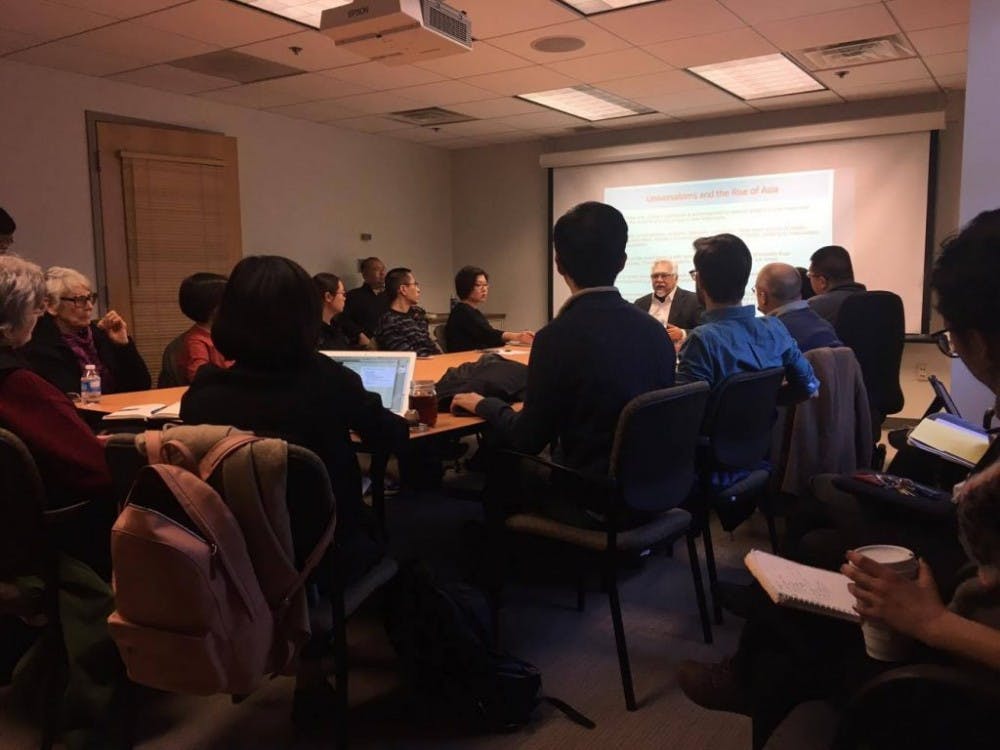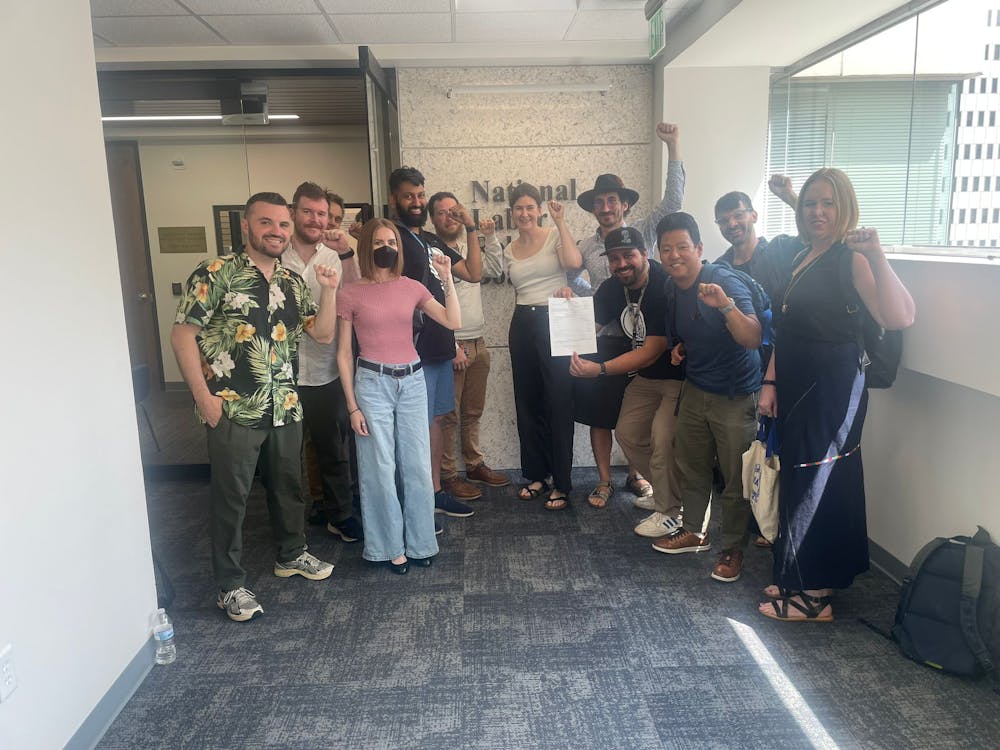Prasenjit Duara, the Oscar Tang Chair of East Asian Studies at Duke University, gave a lecture titled “Transcendence in a Secular World” on Monday, Feb. 6 in Mergenthaler Hall. As the first event of the East Asian Studies spring 2017 speaker series, Duara’s talk centered around Asian traditions and their impact on a sustainable future.
Duara opened his discussion by framing environmental sustainability within the context of modern global challenges. By juxtaposing the crisis of sustainability with the increasing loss of transcendence in people’s ideologies, he cited case studies of sustainability efforts in Asia. Duara cited damming operations in China and forest protection efforts in Cambodia as examples.
“What I want to argue, or at least suggest, is can we think of planetary sustainability as the new transcendent goal of our time? I want to think through the conceptual and political framework understanding historical universalisms in what we call post-western modernity,” he said. “The salvation of the world is much more necessary now than it was during the past.”
However, along with viewing the issues of global modernity through the lens of Asian traditions, Duara still focused on the interconnectedness of the problems and the need for global organization to help push for environmental protection. Duara’s research takes a multidisciplinary approach by tying in elements of sociology, philosophy, history and other disciplines.
He discussed what he called the cyclic histories of countries and the paradox that while nations appear discrete and unique, they have more similarities than differences. He tied this discussion into the global providence of nations.
“Today, it seems to me, even more so than in the 20th century, the mismatch between globality and nations is worse than ever because no nation today is wealthy or poor because of... itself,” Duara said. “It has to do with the globality of [the nation’s] condition. But the problem is that notions of justice are transnational. There is this huge imbalance, so can you solve these problems individually when this mismatch exists?”
Duara noted a change in mindset that is partially responsible for the lack of global sustainability efforts. He described modern thought as straying from what he called an “idea universalism,” as a result of the increasing emphasis placed on consumerism and nationalism.
“Modern people today don’t like to use the word ’universalism,’” he said. “They prefer to call it cosmopolitanism. Call it what you will, but I think of this as a shared sovereignty. No identity can be exclusive.”
Duara also focused on the importance of seeking global sustainability and noted that political and economic roadblocks cause the most damage to achieving this. He cited capitalism and the treadmill of commerce as well as individual political agendas of nations as major impediments to sustainability.
Overall, Duara said he had hope for the potential of civil society, namely environmental non-governmental organizations, to push for protecting natural resources. He noted that approximately 12 percent of the Earth is protected, and most of these sites were conserved because local groups worked to make it so. He emphasized that we must always be working to further educate ourselves on sustainability.
“We need, of course, to devote as much time and importance to planetary sustainability in education as they do on national history and national identity building,” he said.
Sophomore Jia Yao Kuek considered Duara’s talk to be the highlight of the East Asian Studies speaker series thus far. According to Kuek, the breadth of Duara’s research combined with the questions posed by the audience helped to make the lecture thought-provoking for all attendees.
“The cross-disciplinary themes discussed together with the incisive questions posed by the audience helped spark my thoughts on the issue of Asian religious/cultural traditions in an increasingly consumerist world,” Kuek wrote in an email to The News-Letter.
Kuek hopes that Duara will return to the University in the future to share more insights from his vast research.
“As an organizing member [of the East Asian Studies speaker series], I’d just like to invite professor Duara back a second time, to be honest!” Kuek wrote. “His research covers a broad range of topics — this was just the tip of the iceberg.”





